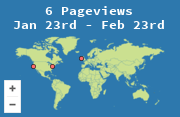In February last year 9 million pupils from grades 2 to 10 across all nine provinces of South Africa sat for the Annual National Assessments, tests that gauged their ability to write, read and count.
The results were dismal.
The overall average score was 30 percent, with even lower results in maths and languages across all grades.
A qualitative analysis of the results showed the following:
- Pupils in grades 1 to 3 performed better, but scores were much lower from grades 4 to 6
- 21 % of the Grade 3s showed competence in comprehension, that is the ability to understand written text
- 25 % of Grade 3s showed competence to apply basic numeracy skills to solve everyday problems
- 49% of the Grade 4s could comprehend what they were reading
- 8 % of the Grade 4s could change sentences given in past tense to present tense (language usage)
- 20 % of Grade 5s could correctly convert sentences in the past to the present tense (language usage)
- 12 % of Grade 4s could respond to simple questions about a story and give reasons that support their answer (thinking and reasoning)
- 11 % of Grade 5s could answer simple questions and respond to emotions from a story (thinking and reasoning)
- 23 % of Grade 6s could understand what was happening in the story they were reading (reading and viewing)
- 5 % were able to write an introduction and conclusion when writing a text
- the percentage of Grade 6s competent in patterns, functions and algebra ranged from 9 to 45 percent (mathematics)
To read more go to Nontobeko Mtshali’s article on IOL News, by Clicking Here!
To go to the Report on qualitative analysis of ANA 2011 results Click Here!
Filed under: competence, Department of Basic Education, Edu News (South Africa), Literacy, reading, Reports, Schools, skills, Statistics | Tagged: 2011, ANA, Annual National Assessments, Education, Failure, literacy, numeracy, poor, pupils, results, South Africa | 1 Comment »








